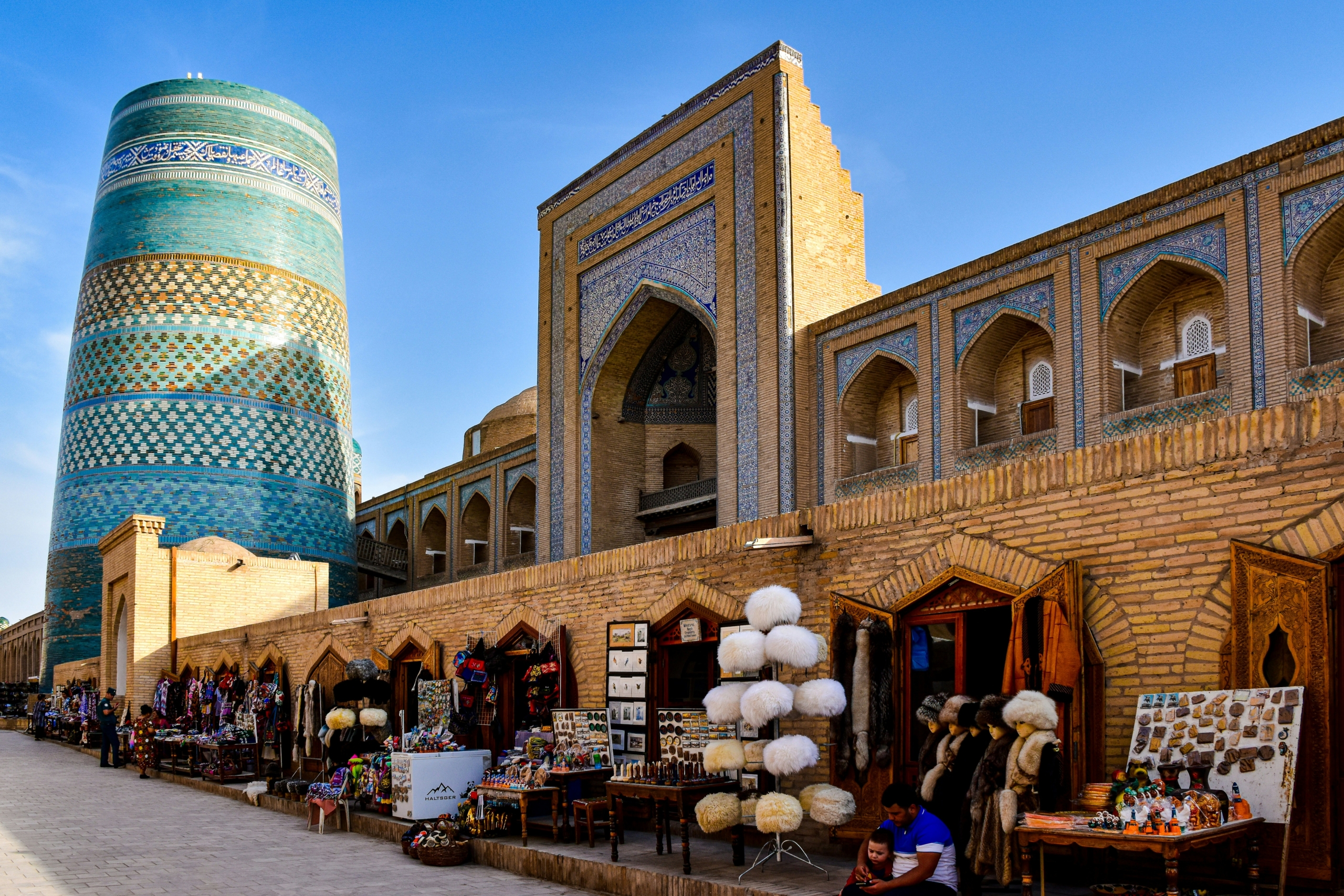Poverty Reduction in Uzbekistan
 Located in Central Asia with a population of 36.65 million, Uzbekistan has a poverty rate of approximately 11% as of 2023. Vast swathes of the country are very rural, some with limited access to services. These rural areas are home to almost 50% of the population whose source of income is derived primarily from informal sectors, leaving them vulnerable to economic insecurity. With the assistance of funding from Luxembourg and South Korea, the UNDP of Uzbekistan has developed a range of long-term poverty reduction schemes following SDG1. An integrated approach to poverty reduction in Uzbekistan has brought about major improvements to the quality of life for much of the population. One of the most effective approaches has been funding and economic support for local business startups; a strategy promoting sustainable economic diversification and long-term monetary self-reliance.
Located in Central Asia with a population of 36.65 million, Uzbekistan has a poverty rate of approximately 11% as of 2023. Vast swathes of the country are very rural, some with limited access to services. These rural areas are home to almost 50% of the population whose source of income is derived primarily from informal sectors, leaving them vulnerable to economic insecurity. With the assistance of funding from Luxembourg and South Korea, the UNDP of Uzbekistan has developed a range of long-term poverty reduction schemes following SDG1. An integrated approach to poverty reduction in Uzbekistan has brought about major improvements to the quality of life for much of the population. One of the most effective approaches has been funding and economic support for local business startups; a strategy promoting sustainable economic diversification and long-term monetary self-reliance.
The Economy of Uzbekistan
Rich in natural resources with a fruitful agricultural industry, much of Uzbekistan’s economy relies on exports, leaving them vulnerable to fluctuations in international commodity prices. Additionally, the agriculture industry is particularly vulnerable to weather changes. The Aral Sea, an important source of water for agriculture in the region, has faced damages such as drought and salinization.
Foreign remittances also make up approximately 20% of the country’s GDP, which could become a source of economic insecurity if future generations become more distanced. The road to guaranteeing long-term economic security and reducing poverty must involve economic diversification and the improvement of quality of life. Recognizing this, the UNDP has sought to develop an approach which addresses poverty-related issues in a multi-faceted way.
Approach to Poverty Reduction in Uzbekistan
Bringing together a group of representatives for a roundtable discussion, the UNDP of Uzbekistan defined its approach to poverty reduction as one that tackles “the complexities and multiple dimensions of poverty beyond just income,” according to the UNDP Deputy Resident Representative. This involves the strengthening of social protection systems and the effective channeling and distribution of resources to those most in need. This approach recognizes poverty’s multiple dimensions and the importance of a sustainable and holistic approach to improving quality of life in the long term.
One particularly socially engaging scheme saw the UNDP working alongside the Westminster International University in Tashkent. This initiative encouraged university students to design practical poverty reduction strategies which they later pitched to experts. The two winning pitches designed schemes for improving Mentorship Support and Financial Literacy. This scheme is a highly effective example of how governments can engage the knowledge and work of young people in the service of national poverty reduction, improving the country’s quality of life.
Support for Small Businesses
One initiative that has proven particularly successful in improving both quality of life and economic diversity in the region is the provision of funds for local entrepreneurs and small-business startups. The provision of a $30 million loan to support local businesses from the OPEC Fund for International Development is one such initiative that recognizes the importance of SMEs in driving economic growth and boosting economic self-reliance. Recent support for local enterprises correlates with the overall direction of poverty reduction in Uzbekistan. According to Uzbekistan’s Center for Economic Research and Reforms, where the income from local small businesses has risen from 0.7% in 2021 to 2.9% in 2023, national poverty rates have fallen from 17% in 2021 to 11% in 2023.
Support for small and local businesses does not only benefit the country economically but can encourage social inclusion and improve quality of life at an individual scale. Investment and funding for SMEs can be channelled towards, say, sustainable and eco-friendly businesses, providing an incentive for the growth of future enterprises of this nature. The European Bank for Reconstruction and Development, for example, has directed funding to female entrepreneurs and female-run businesses. This initiative supports women in business and designs an effective model for long-term economic growth, assisting individuals in developing new professional skills that they can apply in different industries. These schemes are not only economically beneficial for the country, but can also be tailored to encourage inclusion and create opportunities, taking an integrated and sustainable approach to poverty reduction.
Multi-Dimensional Approach
An integrated and multi-dimensional approach, which concerns itself with both income and quality of life, has proven highly effective in aiding the process of poverty reduction in Uzbekistan. The UNDP’s approach emphasizes the importance of future-led planning to ensure the most effective resource distribution to address economic imbalances in the nation. By providing economic support and teaching people new skills, strategies such as funding business startups help to facilitate the reduction of poverty in both the immediate and long-term future.
– Aimee Masters
Aimee is based in London, UK and focuses on Business and Good News for The Borgen Project.
Photo: Unsplash
